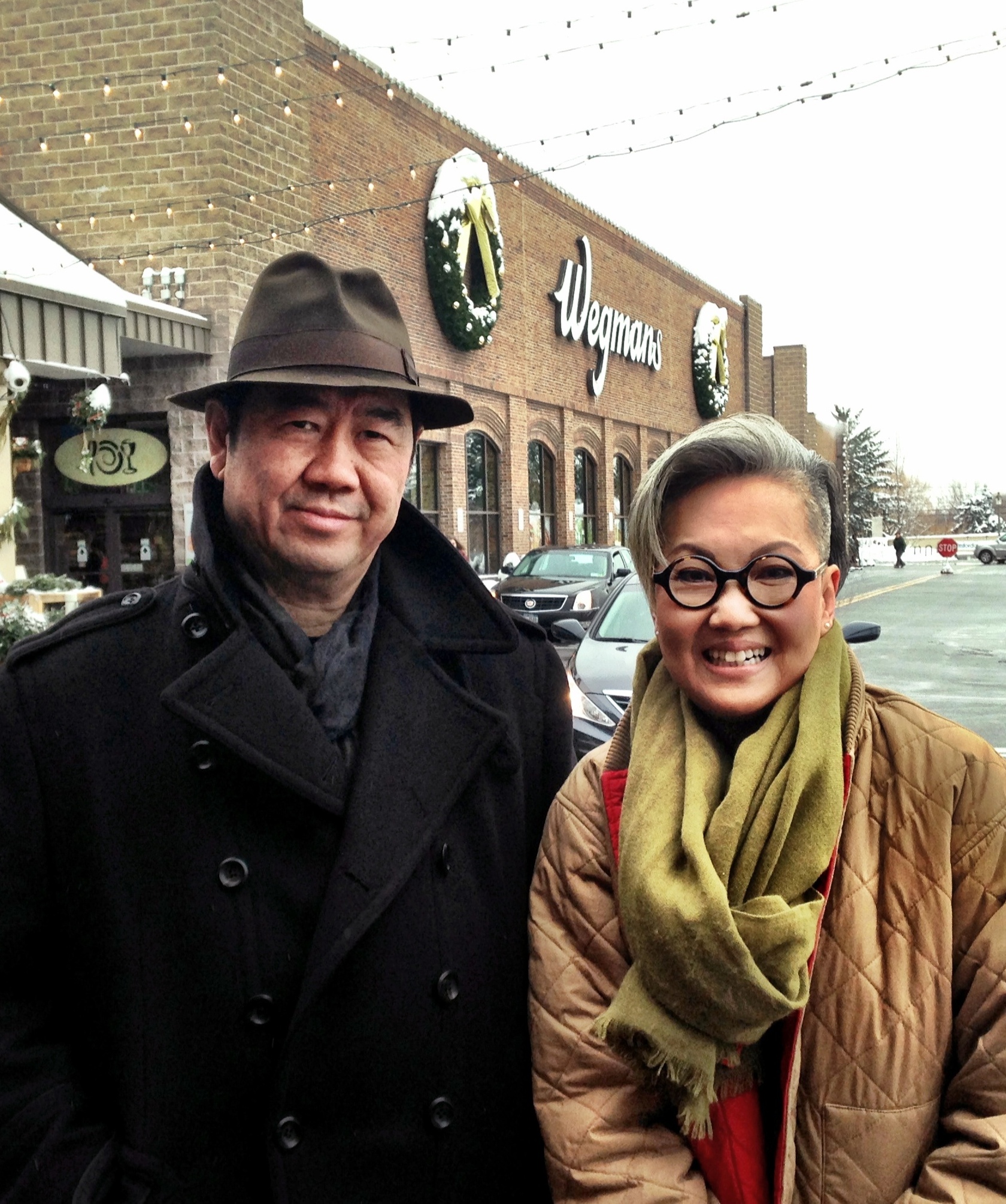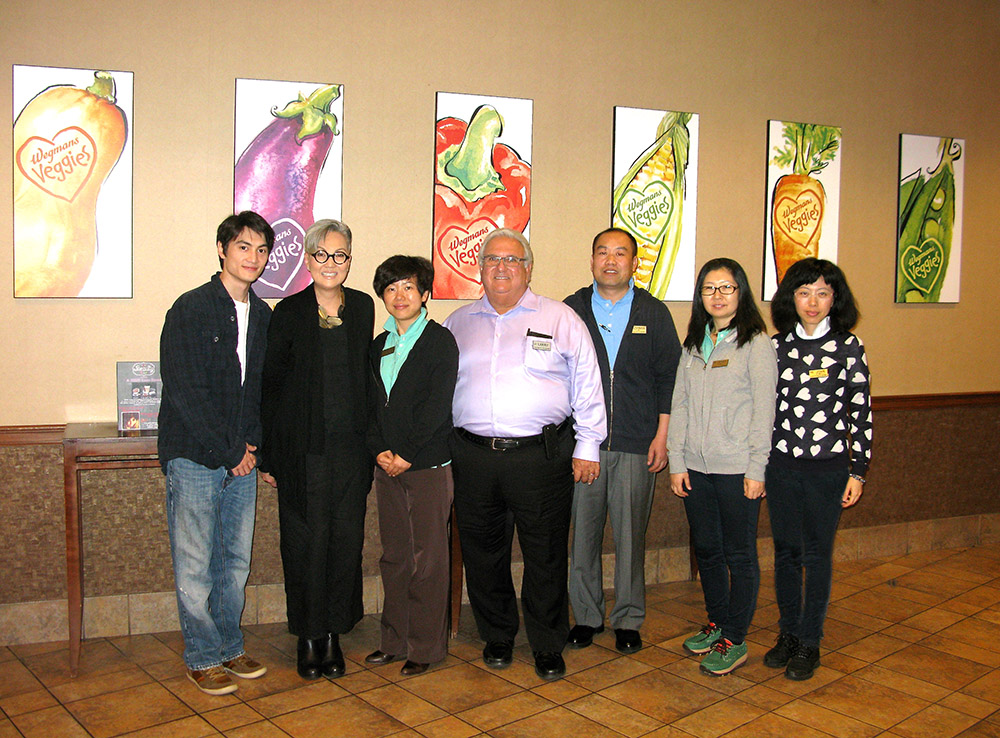
Beijing Hualian Group BHG Chairman Ji Xiao An and China Millennium Council President Mary Ho Discuss the Importance of Global Innovation in the Ever-Evolving Consumer Retail Marketplace and Business Enterprise Development at the Wegmans Food Market Flagship Store in Pittsford, New York, USA
Wegmans Food Market flagship store in Pittsford New York recently launched a series of healthy home-style Chinese foods in collaboration with China’s leading hypermarket retail enterprise, the Beijing Hualian Group Investment Holding Co., LTD. BHG Chairman Ji Xiao An and his innovation team led by Frank Ji oversaw the development and training of Chinese culinary dishes for the chefs at Wegmans. Ready to eat foods emphasize authentic, nutritious and tasty dishes including Shiitake Mushroom Congée, Sichuan Style Dandan Noodles and Chinese Barbequed Pork. Catering to the ever-growing international palate of Wegman’s customers, their newly renovated Asian foods pantry now stock a wide variety of fresh Chinese youchoy and bokchoy greens, Daikon icicle radishes and select varieties of bulk long-grain and short grain rice.
BHG Beijing Hualian Group Investment Holding Co.,Ltd. is a leading multinational global enterprise as one of the 15 largest retail enterprises supported by the China Ministry of Commerce including primary membership in the International Association of Department Stores (IADS), and two publicly listed companies and several holding companies. BHG Group’s business is focused on hypermarkets, supermarkets, department stores and commercial properties. BHG is established in more than 80 hypermarkets in 35 key cities and 23 provinces across China and the Pacific Rim countries. The Beijing Hualian Group values customers first and foremost. Their core business principles include integrity in all relationships — with employees, customers, suppliers and cooperating partners. “We seek to maintain and grow our company’s high recognition and reputation, and made “Beijing Hualian” a prestigious brand in the country” and now earmarked as a prestige global brand.
China is now the fastest growing global economy, ranked second only to the U.S. as the world’s largest economy. The new visa accord established between U.S and China will enhance trade, investment, and business ties by facilitating travel and ease access to both economies. Extended validity visas for students and exchange visitors will foster the bonds between U.S. and China and facilitate travel for outstanding students from around the world who attend U.S. institutions of higher education. As a result of this arrangement, the U.S. hopes to welcome a growing share of eligible Chinese travelers, inject billions in the U.S. economy and create demand to support hundreds of thousands of additional U.S. jobs. Global growth of outbound travel from China represents an unprecedented opportunity to foster job creation across the country. China is the fastest growing outbound tourism market in the world, and Chinese visitors have accounted for 20 percent of the growth in overseas travel to the U.S. As incomes in China continue to rise, the number of Chinese citizens able to afford international travel and tourism is projected to more than double over the next few years, reaching the hundreds of millions. Close to 7.3 million Chinese are projected to travel to the U.S. by 2021, contributing nearly $85 billion a year to the economy and supporting 440,000 jobs.

